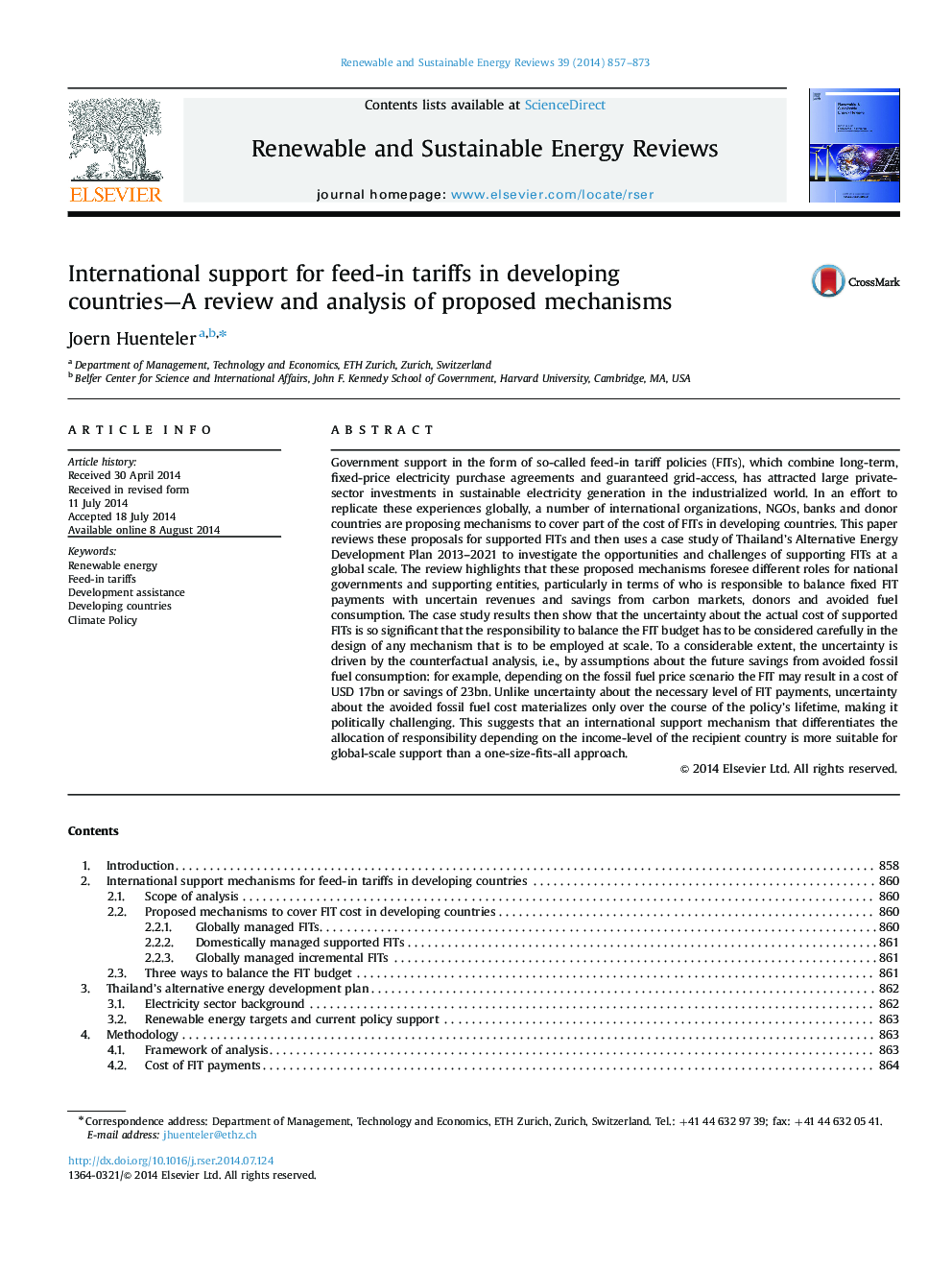| Article ID | Journal | Published Year | Pages | File Type |
|---|---|---|---|---|
| 8119195 | Renewable and Sustainable Energy Reviews | 2014 | 17 Pages |
Abstract
Government support in the form of so-called feed-in tariff policies (FITs), which combine long-term, fixed-price electricity purchase agreements and guaranteed grid-access, has attracted large private-sector investments in sustainable electricity generation in the industrialized world. In an effort to replicate these experiences globally, a number of international organizations, NGOs, banks and donor countries are proposing mechanisms to cover part of the cost of FITs in developing countries. This paper reviews these proposals for supported FITs and then uses a case study of Thailand's Alternative Energy Development Plan 2013-2021 to investigate the opportunities and challenges of supporting FITs at a global scale. The review highlights that these proposed mechanisms foresee different roles for national governments and supporting entities, particularly in terms of who is responsible to balance fixed FIT payments with uncertain revenues and savings from carbon markets, donors and avoided fuel consumption. The case study results then show that the uncertainty about the actual cost of supported FITs is so significant that the responsibility to balance the FIT budget has to be considered carefully in the design of any mechanism that is to be employed at scale. To a considerable extent, the uncertainty is driven by the counterfactual analysis, i.e., by assumptions about the future savings from avoided fossil fuel consumption: for example, depending on the fossil fuel price scenario the FIT may result in a cost of USD 17bn or savings of 23bn. Unlike uncertainty about the necessary level of FIT payments, uncertainty about the avoided fossil fuel cost materializes only over the course of the policy's lifetime, making it politically challenging. This suggests that an international support mechanism that differentiates the allocation of responsibility depending on the income-level of the recipient country is more suitable for global-scale support than a one-size-fits-all approach.
Related Topics
Physical Sciences and Engineering
Energy
Renewable Energy, Sustainability and the Environment
Authors
Joern Huenteler,
